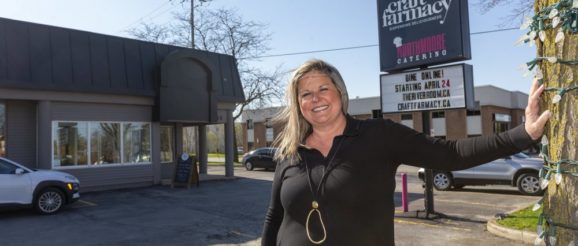London fine dining establishments face challenges with innovation to survive pandemic | London Free Press

“We’re a fine dining restaurant and I didn’t think takeout would be suitable for our food. It would also be a headache trying to do the takeout and serving lunch or dinner.”
David Chapman, a veteran of more than four decades on the London restaurant scene who opened David’s Bistro in 1998, has overcome a number of hurdles, including a seven-month closure in 2017 due to a fire next door. He’s sitting this one out.
“It’s not just about the food. We’re all supposed to be home being safe for our health. So, I’d rather just wait.”
When the pandemic hit, Jess Jazey-Spoelstra was in France and returned to shutter her four businesses: Craft Farmacy, a casual fine dining restaurant on Wharncliffe Road she co-owns with executive chef Andrew Wolowicz; North Moore Catering, which operates in a second kitchen at the same address; and the River Room and the Rhino Lounge at Museum London.
“To have everything like that grind to a halt is scary because you still have all the bills to pay, the loans and other expenses,” said Jazey-Spoelstra.
Article content continued
The businesses were closed for several weeks, but now are offering takeout off a slimmed-down menu from Craft Farmacy and the River Room. The menu features eats that travel well, covering appetizers, main courses, desserts and side dishes.
They will soon also offer meal kits that require some cooking and preparation at home — “easy things for people to make where we do the hard work and our guests finish them.”
Groceries are also for sale on the websites of both restaurants, similar to Grace Pantry, while the award-winning North Moore Catering continues to operate.
“We’ve had a lot of sleepless nights,” said Jazey-Spoelstra, who has kept 17 employees (the two restaurants usually employ nearly 100 people), including chefs, working for higher-than-normal wages that are topped up through the federal subsidy.
“It’s like I’ve opened up a new business again. I actually cried wondering, ‘What if we lose everything because we opened?’ It was scary. It’s an entirely new business model so you don’t know how it’s going to go. It’s really a steep learning curve.”
The grocery and takeouts reopened April 24 and generated about $20,000 in revenue after six days in operation. They are closed Sunday and Monday, open for groceries (by order for pickup and free delivery) Tuesday through Saturday from 9 a.m. to 5 p.m. and for takeout Wednesday through Saturday, 5 to 9 p.m., by pickup or free delivery.
“I think people are tired of cooking and they’re tired of ordering pizza or Chinese food and burgers,” said Jazey-Spoelstra, who is now exploring the possibility of opening a tent-covered patio with safe-distance seating in her parking lot.
